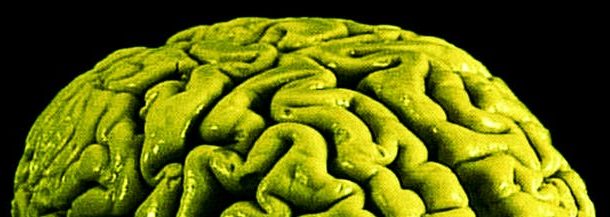In March, long-term marijuana smoker Woody Harrelson surprised fans by announcing he was giving up his chronic pot habit, saying it made him “emotionally unavailable.” Likewise, in June, notorious stoner Miley Cyrus did the same, saying she “wanted to be really clear” while making her new album. Long-term pot smokers who have quit cite similar anecdotal evidence about the chronic effects of weed, but scientists have only recently begun understanding what, if anything, it actually does to the brain.
In a study on mice published Monday in the journal JNeurosci, scientists report that long-term marijuana use does indeed change the brain.
In their study, the researchers from Brigham Young University’s neuroscience department, led by Jeffrey Edwards Ph.D., focused on the brain’s ventral tegmental area (VTA), a region rich with the dopamine and serotonin receptors that comprise the brain’s reward system, looking at how its cells changed as the teen mice they studied received daily THC injections every day for a week. Researchers know that drugs of abuse, like opioids, alcohol, and marijuana, act on the VTA, and it’s thought that the active ingredients in these drugs stimulate the release of dopamine in this area, thereby triggering the flood of pleasure that drugs (as well as friendship and sex) provide — and creating cravings for more.
In particular, they looked at a type of cell in the VTA known as a GABA cell that marijuana researchers hadn’t looked at before. The cells are named for the type of neurotransmitter they pick up — GABA, short for gamma-aminobutyric acid — which is well-known for its inhibitory properties. Imagine GABA as the high-strung friend who becomes anxious when the rest of the group has too much fun. When GABA is released in the brain, it regulates the levels of happy-making dopamine, making sure revelry doesn’t go overboard.
This friend is a bit of a buzzkill but seems to be necessary to prevent the brain from having too much of a good thing. But, as it turns out, GABA neurons can be incapacitated, too.
As the researchers observed these cells in teen mice over their THC-filled week, they saw that the ability of the GABA neurons to regulate dopamine faltered as the trial went on. In contrast, mice who only received a single injection of THC — the Bill Clintons of the group — didn’t show any changes in their GABA neurons, suggesting that the effects seen in the chronic users are a consequence of long-term marijuana use. Those changes led dopamine to linger in the VTA longer than usual, which caused an abnormally drawn-out feeling of reward. And too much of those pleasurable feelings, scientists have found, is what leads to addiction.
The team behind the study hopes that their findings can eventually be used to treat people with cannabis use disorder, defined by the Diagnostic and Statistical Manual of Mental Disorders-5 as a “problematic pattern of cannabis use leading to clinically significant impairment or distress.”
The term problematic, in this case, refers to a range of criteria largely centered around the inability of people to do what they need or want to do because of their addiction to the drug. It’s not clear whether Harrelson and Cyrus had been diagnosed with cannabis use disorder, but their reasons for quitting weed seem to line up.








Comments are closed.